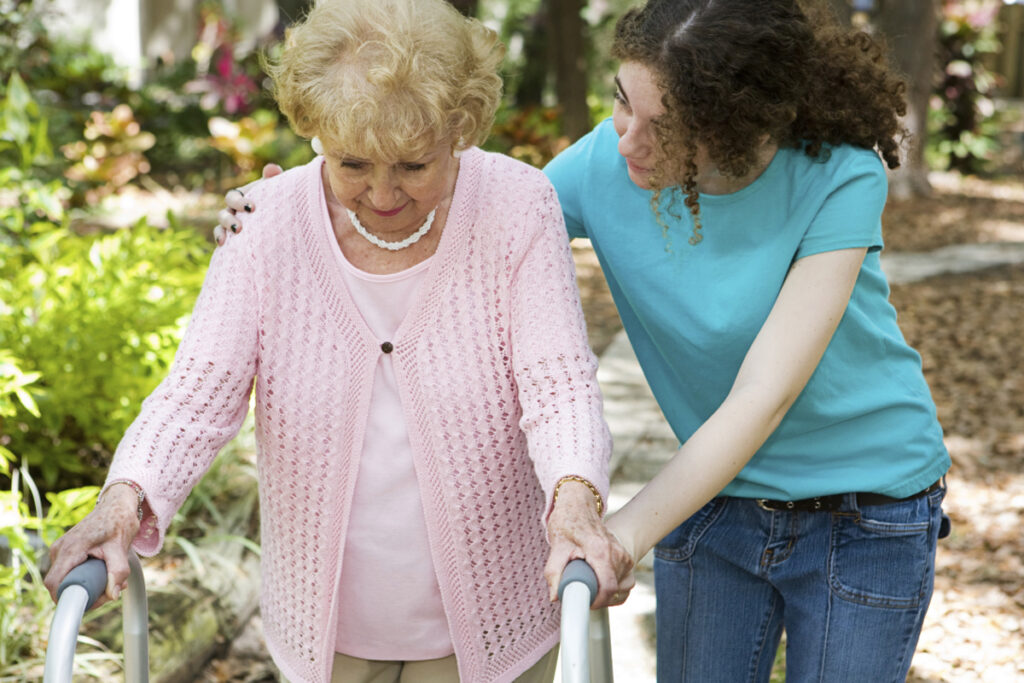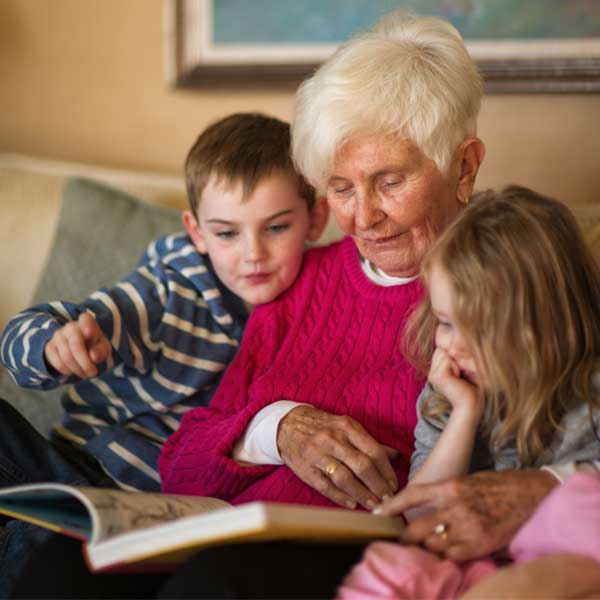More and more people in their 30s and 40s are stepping in to be caregivers for their parents living with Alzheimer’s disease, another form of dementia, or another age-related ailment. A 2020 AARP study found that 9.5 million Americans are family caregivers. Another study found 44.8% of caregivers are unpaid, and under the age of 45.
What is the Sandwich Generation?
This group of caregivers under the age of 50 is known as the “Sandwich Generation.” The BBC defines the Sandwich Generation as being “the caught in the middle generation who has living parents and children.”
With COVID-19, the looming recession, and other factors at play, the number of people in this category has only grown in recent years. A larger group of caregivers have the very challenging task of balancing their work life, raising their children, being the primary caregiver for their parent(s), and attempting to live fulfilling social lives.
Raising children by itself is a challenging but adding to that the hardships of caregiving for a parent with dementia, likely impacts not only daily routines for the caregiver, but also the children involved.
Top Tips for Caregivers with Children
Each family is different. Each case of dementia is different. So, it is crucial that everyone in your family acknowledges that there will be a period of learning when there may be uncertainty and discomfort. The main goal is to ensure every person is safe and provided the care they need and deserve.
1. Educate your children about dementia.
Children often understand more than we think, so include them in the appropriate discussions.
“Grandma is having trouble remembering certain things; we want to make sure she is happy and safe, so she is staying with us now. Do you want to talk about it and how you can help us?”
Intergenerational learning can benefit your parent with dementia and your children. Include your child in the caring process as a way for them to gain skills and important life lessons. Adding more youthful energy to your parent’s daily life will benefit the person with dementia as well.
“Can you help grandma with her puzzle? She may get frustrated, please be patient. Talk with her.”
2. Create an open line of communication.
Caregiving is a stressful process. When we see our loved ones in pain and times of confusion, it can take a toll on us physically and mentally. Creating an open line of communication for everyone in the family as a way to support each other and help to alleviate some of the stress experienced while managing everyone’s mental health.
“Grandma got a bit upset yesterday, was that scary for you to see? We can talk about it, when you are ready.“
Safe spaces are hard to find as a kid, so try contacting your child’s school to ensure school officials are aware of the home situation. Set up regular check-ins with your child’s school counselor or psychologist so that they have the opportunity to talk to an outside, supportive party.
“You know, I talk to a good friend once a month about my feelings and thoughts, especially how I get overwhelmed with Grandma. Would you like to have someone to talk to during the school day? They will not tell us what you say, but you can go to them if you feel stressed or need to take a breather.”

3. Establish a routine with set caregiving responsibilities
Everyone has responsibilities. We tend to take on more as we get older, so including suitable responsibilities for your child can prepare them for their future. Incorporating caregiving responsibilities into your child’s routine allows them to interact with their grandparent, make them comfortable with aging, and give them a sense of purpose. Creating an action plan can ease any confusion.
“I understand you already have schoolwork and house chores, but it would helpful and mean a lot to your grandma and me, if you sat with her every day at 4 p.m. while dinner is being made. If you could make sure her table is set and she has everything she needs, that would be a big help.”
Reminding your child, and yourself, that caregiving is not a common household chore and that no task is too small is pivotal. Caregiving can often bring up feelings of stress and resentment, and children are not immune to those feelings. So, having frequent talks about how helpful and important they are in caregiving, as well as school and family life, can create a more content environment.
“You may not see it, but you make grandma very happy when you sit with her. It may seem like a chore, but we are all helping each other. It is what family does. This is precious family time, but it is okay if you feel overwhelmed at times, I do too.”
4. Make time for downtime
Going from work, to taking care of your home and kids, and caregiving for your parent around the clock is taxing. It is easy to tell yourself you cannot take a break. Caregiver burnout is very common. However, it is critical for caregivers to find time to get away from it all for a while. Feeling well-rested or having some fun now and then will help you be a better caregiver, as well as show your child that with responsibilities, come rewards. Having prescheduled days of relaxation or a respite from caregiving allows you and your child to look forward to something out of the daily routine. It is okay to ask for help, and when necessary, bring your parent to an adult day care center.
“On May 20, we have our special day at the park. We have someone coming over to watch grandma, so we have the full day to relax. We can pick up a treat for grandma too.”
It is also okay if you need downtime away from your child, and for them to need time away from you! Creating a healthy separation can reduce conflicts and allow your child to develop as an individual person, rather than solely a family member.
“It is okay if you want to play soccer with your friends today. I would like to stay home and catch up on some reading. We have everything taken care of here; do you want to grab a fun treat from the store to share with your friends?”
5. Maximize your child’s talents and interests

It is going to feel like you are juggling a lot. Parenting and caregiving are already full-time jobs. Combining them and adding a “9-to-5” office job is not easy. You might feel guilty at some points, endlessly tired at others, anxious, or a myriad of other emotions. Each day is different. It is okay to include your child in the process, as much or as little as you see fit. However, children so often have such a great outlook on life; they can make a great asset in the caregiving process.
Let them enjoy time with their grandparent, as any child would. Encourage time for drawing, to sit in the yard, or watch a movie with their grandparent. Your child might even have suggestions of their own, like a private concert for their grandparent. This allows you to take a step away or moment to relax and gives your child and parent ample bonding time to create memories.
Resources:
- 8 Activities for Seniors with Dementia That Kids Can Do Too
- 6 Ways to Cope While Raising Kids and Caring for Elderly Parents (empoweringparents.com)
- Why the ‘sandwich generation’ is so stressed out – BBC Worklife
- Caregivers in the U.S. – Statistics & Facts | Statista
- What to Tell the Kids About Their Grandparent’s Dementia





